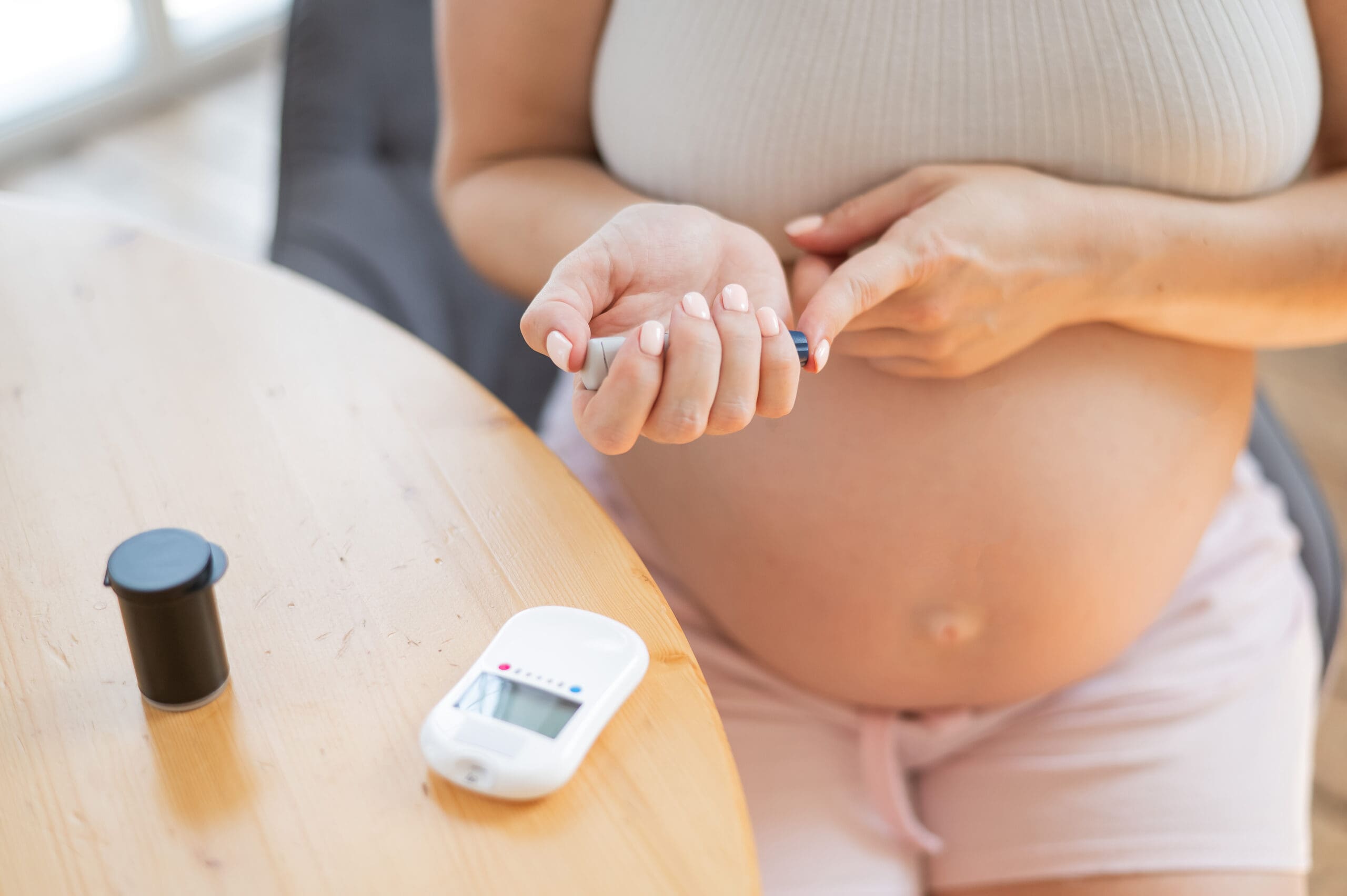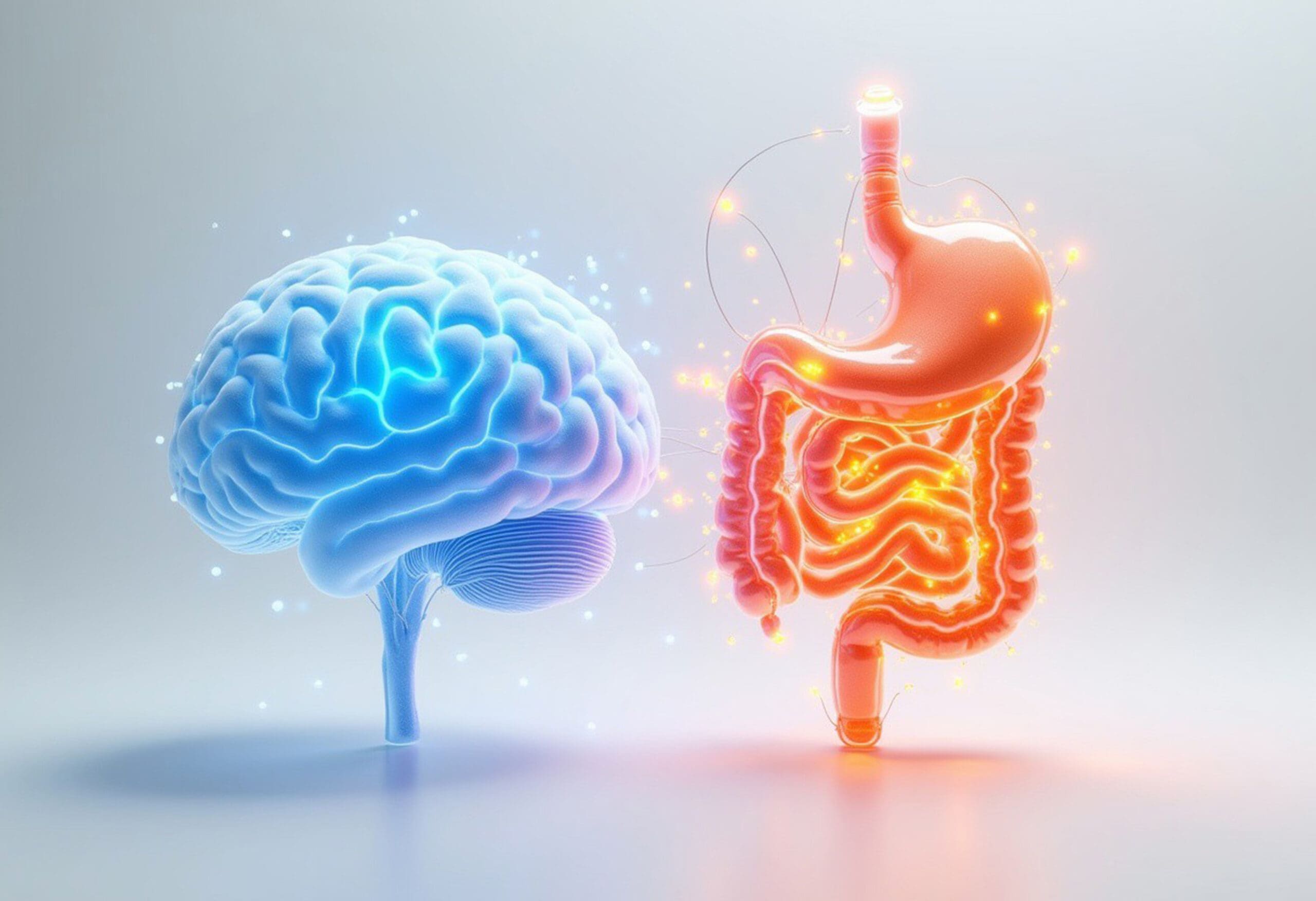Polycystic ovarian syndrome and bipolar disorder are linked
By naturopath Margaret Jasinska
New research yet to be published in the Journal of Affective Disorders has shown that women with polycystic ovarian syndrome (PCOS) are at significantly increased risk of developing bipolar disorder. The risk is reduced in PCOS patients receiving metformin treatment, but not in women receiving hormonal treatment (oral contraceptive pill). Insulin resistance is the main cause of PCOS in the majority of cases. This means insulin resistance also adversely affects mental health.
Polycystic Ovarian Syndrome (PCOS) is the most common hormonal problem in premenopausal women. Around one in every six women probably has the tendency to polycystic ovaries. The condition has a strong genetic component but diet and lifestyle heavily influence its severity.
The term Polycystic Ovarian Syndrome is derived from the presence of small fluid filled sacs or cysts which accumulate in the ovaries from trapped eggs, which were never released from the ovaries. In a normal ovary, a single egg develops and is released each month. In PCOS, normal ovulation or release of the eggs at the middle of the menstrual cycle is inhibited.
PCOS is a syndrome, meaning a collection of possible symptoms. A woman may have PCOS without actually having ovarian cysts. Other typical symptoms are scalp hair loss in the male pattern (front and sides), acne, excess facial hair and body hair and weight gain around the torso. The metabolic state that is present with PCOS usually makes it extremely difficult to lose weight. Therefore most women with PCOS are overweight, particularly around their torso and upper body. They typically find weight loss extremely difficult and frustrating.
Because ovulation does not occur very often, these women do not produce adequate amounts of the hormone progesterone but do produce oestrogen. This results in infertility and very infrequent menstrual bleeding. This lack of progesterone can also result in heavy irregular menstrual bleeding. Bio-identical progesterone cream helps to correct this hormone imbalance in women with PCOS. The doctors at our clinic can prescribe progesterone.
The majority of women with PCOS produce too much insulin in their bodies. Insulin disrupts normal ovarian function and leads to excess male hormone production. This causes the symptoms mentioned above. What causes insulin to be released? The answer is carbohydrate. Women with PCOS tend to oversecrete insulin in response to low-normal levels of carbohydrate in the diet.
This new study has highlighted the fact that insulin resistance affects what’s happening in the brain. Bipolar disorder is a type of depression associated with episodes of extreme mood swings, ranging from severe lows to manic highs. There are different types of bipolar depression. The diagnosis is made by a psychiatrist.
Mental health problems like depression and anxiety are affected by a person’s overall state of health. The brain is connected to the rest of the body. What’s happening in the body will affect the brain. Hormone levels in your body affect neurotransmitter levels in your brain; so does your blood sugar level. This study shows, the more insulin resistant a woman is, the higher her likelihood of developing bipolar disorder. Reducing the insulin resistance with metformin helps to ameliorate PCOS symptoms and also reduces the risk of bipolar disorder.
The thing is, in reality metformin isn’t very effective. Women with PCOS typically take it for years and rarely achieve much of an improvement. There are other ways to improve insulin resistance. You can do these along with metformin or instead of it:
- Reduce the amount of carbohydrate in your diet. Insulin resistant people cannot handle common levels of carbohydrate. They oversecrete insulin in response to eating carbs and they are less likely to feel satisfied after a meal, therefore tend to over eat. That means carbohydrate needs to be restricted in the diet. Vegetables contain carbohydrate. Even if you ate no carbohydrate at all, your liver would produce it for you via the process called gluconeogenesis. Amino acids from protein and glycerol from fatty acids can easily be turned into glucose. There is an easy to follow low carbohydrate eating plan in Dr Cabot’s book I Can’t Lose Weight and I don’t know why.
- Protein is the most important nutrient for those wanting to improve PCOS and reduce their blood insulin level. It is critical to eat protein at every meal because it is extremely satiating. It will help to make you feel more full and satisfied after a meal, and keep you feeling satisfied for longer. This way sticking to a healthy diet will be easier. Examples of protein include eggs, seafood, poultry and red meat. Dairy products, nuts and seeds contain smaller levels of protein. Protein powders can be extremely helpful because they provide a quick, tasty and easy meal option for busy days.
- It’s important to eat adequate fat because it increases meal satiety, is used for hormone production and does not cause insulin to be released. Examples of fats to eat include egg yolks, olive oil, salmon with the skin, avocados and the fat on beef and lamb (preferably grass fed).
- Sugar, industrial seed oil, dairy products and alcohol can all increase inflammation in your body. Inflammation worsens insulin resistance. Almost any health problem is associated with excess inflammation. Being inflamed can make you feel tired, suffer with a low mood and can make weight loss very difficult. Dr Cabot’s 15 Day Cleanse is a program that improves liver health, gut health and immunity. It helps to improve energy levels and reduces inflammation. It comes with a healthy eating plan that addresses insulin resistance.
- There are specific nutrient deficiencies that can worsen insulin resistance. Correcting those deficiencies can improve outcomes. There are also herbal remedies that reduce elevated insulin levels.









Leave A Comment